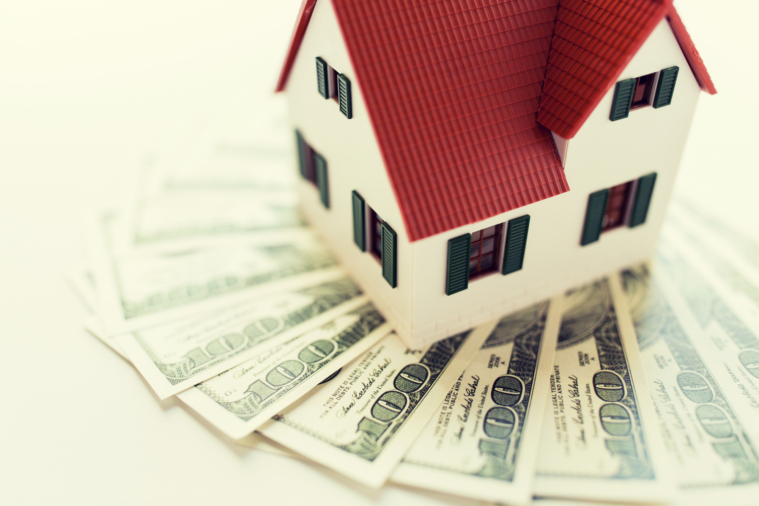It’s difficult to make a direct comparison between the cost of living in the United States and Ghana for one simple reason, that being that it’s a lot more difficult to make a decent amount of money in the latter than it is in the former. But if we were speaking strictly in Forex terms, the simple answer would be that the cost of living is significantly lower in Ghana.
For instance, a decent two-bedroom apartment can be rented in the Ghanaian capital of Accra for about $1,000 annually. Contrastingly, renting the same-sized residence in most average parts of the US now runs somewhere within the range of $1,500-$2,100 per month.
In other words, you’d be paying roughly twice as much to live in an apartment for a single month stateside as opposed to what it would cost for an entire year in Ghana. So in that regard the cost of living is definitely lower.
But out here, landlords tend to collect rent on a yearly basis. In other words, you usually have to pay for at least one year upfront (with an additional month’s security deposit). And that’s a lot easier said than done for most residents, as you’re not likely to earn the money fast and therefore have to be in a position where you can successfully save it over a period of time.
So in that respect the US system is more friendly, as in that part of the world you usually only have to pay three months upfront, i.e. the first month, the last month and a security deposit.
Cost of Groceries
So with that in mind, when it comes to groceries the economic burden between the two countries feels the same, even if food is generally less expensive in Ghana. For instance, these days, you can purchase a sizable roadside fast-food meal in Ghana for about GH₵20-30 which, based on the current exchange rate (as of this writing), is less than $3.
Concurrently a Happy Meal, i.e. a child’s plate at McDonald’s, the most-popular fast-food chain in America, costs between $4 and $8. In Ghana, you can feed an entire family for $8 – for multiple days even depending on the frugality of whoever’s in charge of the groceries. And so it tends to be across the board when it comes to the types of general items you find in a supermarket, such as soap, toothpaste, etc.
The same goes for the likes of clothes and even automobiles. The situation is basically such that, no matter what country you’re in, an economy cannot be too expensive for its citizens to partake of. Otherwise, businesses will not make any money.
Inflation
But still, the inflation in Ghana is comparable to that now being experienced by Americans. So even though, to foreigners, prices may look cheap on paper, many, if not most Ghanaians are still struggling to make ends meet.
Or another way of looking at it is even if, say, you can get a decent car in Ghana for under $3,000, by the time you end up raising that money locally, it’d feel the same as if you were purchasing a $10,000-15,000 vehicle in the United States, i.e. it not being the type of money that everyone has access to.
In some instances, the price of goods is roughly the same between the US and Ghana. This is most especially true, based on my experience, when it comes to electronics. For example, the amount you would pay in dollars for an android or iPhone in the States is about the same you would pay for it in Ghana cedis.
In some cases it may be slightly lower – in others, a bit higher. One of the more helpful aspects of the Ghanaian market, unlike the US, is that prices are most often negotiable. So sometimes, if you have a sympathetic seller who isn’t in dire need of money and also takes a liking to you, you may be able to get a good deal.
By contrast in the United States, unless maybe you’re buying something hand-to-hand or through an auction, prices for food, rent, electronics, etc. tend to be set in stone.
Utility bills feel as if they are higher in Ghana than what I experienced in the States. For instance, stateside a person’s water bill is usually an afterthought. But out here, the amount I have to pay for h20 sometimes catches me by surprise.
I don’t believe that this is the result of utilities being relatively higher on this end. Rather, it’s more as if in Ghana, you really feel the rate of inflation. For instance, you may find your electricity bill being noticeably or even painfully higher than it was just a year or so ago, even if now you’re consuming less electricity.
The Ghanaian system, based on my two decades of experience, has always more or less felt merciless like that, though now such is also becoming increasingly common in the United States.
CONCLUSION
Technically and generally speaking, the cost of living in Ghana is exponentially less than it is in the United States. But in real terms, despite that difference, it isn’t as if average Ghanaians are living better than their American counterparts. And that’s due to three general reasons.
At the top of the list, even though the cost of living is cheaper in Ghana, that advantage is offset by the fact that it’s also more difficult to make money out here.
Secondly, the government in the United States is dedicated, in varying degrees, to helping families and businesses that may be experiencing financial difficulties, which is a practice virtually unheard of in Ghana.
And third, credit is not as readily available in Ghana as it is in the States. That means if you’re making a large purchase like a house or car, you’d often have to pay it all upfront, which is the type of money that most people don’t have, even in the United States.

